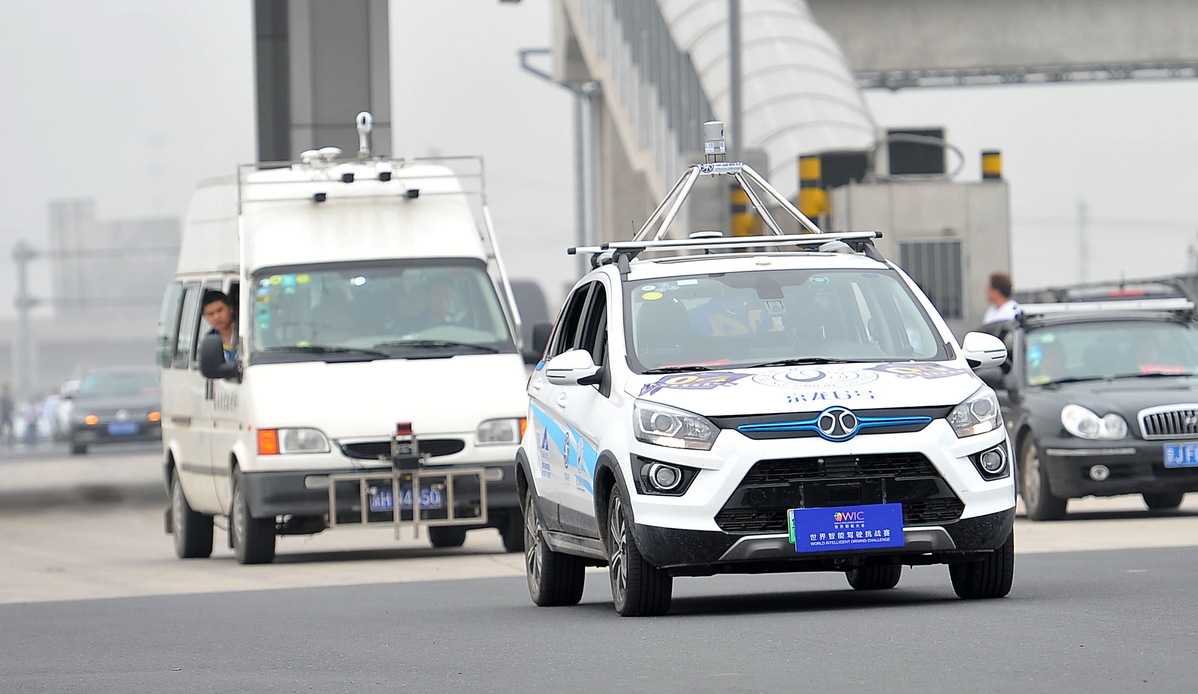Insurer eyes new trends in auto sector for growth

Emerging auto trends like connectivity, shared mobility, autonomous driving and electrification are rewriting the playbook for the auto insurance and service industry and spell huge opportunities for those who can ride the wave on such booms, a senior industry executive said.
China is perhaps among the best places to pioneer novel insurance practices thanks to the sheer size of the auto market, the constant push for digitalization and faster pickup in vehicle-related technologies, said Christophe Aniel, chief executive officer of Allianz Partners Greater China, a subsidiary that specializes in roadside assistance (RSA) for insurer Allianz Group.
"With the advent of new technologies, now cars don't operate in the same way and problems - from engine-related questions to the life span of batteries - don't occur in the same frequencies," he said.
To meet the fast-changing environments, Allianz Partners has converted the classic roadside assistance business in China into digitalized services through either integrated IT systems or mobile applications.
"For instance, with a single click on a designated button in WeChat, end-users can access the interface to request assistance, monitor the location of rescue vehicles in real time, and achieve direct visual tracing of the process and quality of assistance service," he said.
Auto and roadside assistance business accounted for three quarters of Allianz Partners' 350 million euros ($392 million) business in China, a country that ranks first in the number of RSA cases handled per year.
The digitalization push is exemplified through the launch of emergency, breakdown and other travel-related information call services by teaming up with auto original equipment manufacturers like BMW, Honda and Great Wall in China, he noted.
Besides, autonomous driving and shared mobility are also set to disrupt the definition of responsibilities of drivers should an accident occur. A notable effort to stay ahead of the curve is the drafting of a roadside assistance standard under the autonomous driving scenario together with the China Automobile Dealers Association.
The company has also worked with an automaker to build up a dedicated ride-hailing fleet in Southwest China's Sichuan province, and it has tied up with local players like Intelligent Connected Vehicle United Innovation Center for joint autonomous driving studies in Shanghai.
"It's all about identifying the behavior of each party (under the new driving circumstances) and be sure to put trust in the center," Aniel said.
China is the world's top energy vehicle market, accounting for 55.3 percent of global EV sales in 2018, according to data from the China Association of Automobile Manufacturers.
Allianz Partners' efforts on the electrification front are not confined to providing e-vehicle roadside assistance and fast-charging solutions. It has worked with the China Insurance Information Technology Management Co Ltd on a joint analysis of the country's new energy vehicle market and identify EV-specific risks.
A study conducted by global consultancy KPMG has predicted a decline in the frequency of accidents so that within 25 years, the personal auto industry could shrink to 40 percent of its current size.
"It is imperative for companies to identify potential alliance and partnerships, make initial overtures, and determine an industry point of view on key areas like liability and regulation," said Joe Schneider, a managing director on insurance investment banking at KPMG.

